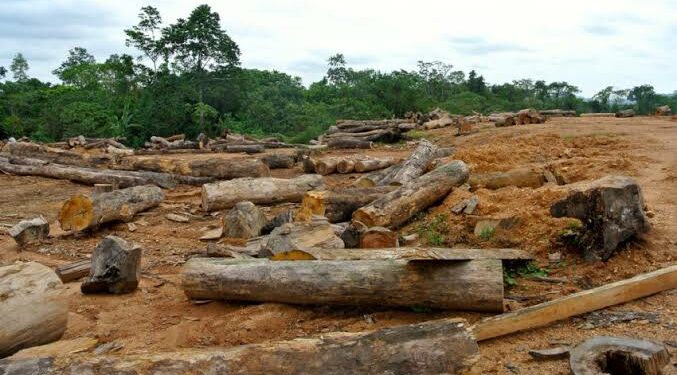The National Afforestation Programme is set to receive a significant boost with a budget of N200 million in 2025.
This program aims to promote sustainable forest management and restore degraded forests across the country.
The Institute which has carried out the afforestation campaign in the past with lesser amount of approved funding, has decided to push the lever upward for the national afforestation programme up, by 100 per cent.
Identified under the code Economic Recovery Growth Plan (ERGP) 19123493 and 30171837, the institute has invested taxpayers money to the tune of N492,014,769 on the behalf of Nigerians to combat climate change in the last four years spanning 2021 to 2024.
Figures available to Nigerian Tribune showed that the afforestation programme which has annually been tagged a new project, received various sums to execute them in the last four years.
ALSO READ: Gunmen kill two farmers in Kogi
In 2021, the Forestry Research Institute Ibadan (FRIN), got presidential assent to expend N150,000,000 for the National Afforestation Programme under the (ERGP) 19123493. The same programme changed code in the institute’s budget for the year 2022 and got N92,014,769, with the ERGP30171837.
The code returned in 2023 as ERGP19123493, this time, the Institute got presidential approval to expend another N150,000,000 on behalf of Nigerians to fight climate change and preserve the livelihood of the population.
The funding for the national afforestation programme dipped by N50,000,000, as the national assembly only approved N100,000,000 for the same programme in the first year of the renewed hope administration of 2024.
The cumulative of this expenditure was over N492 million.
In a new and bold move the Forestry Research Institute Ibadan (FRIN) has approached the national assembly with a new high in the campaign to boost the forest cover of Nigeria.
It has proposed N200,000,000 for investment in afforestation of Nigeria to fight climate change and provide the nation with more green cover as well as raise the nation’s carbon credit footprint.
READ MORE FROM: NIGERIAN TRIBUNE







